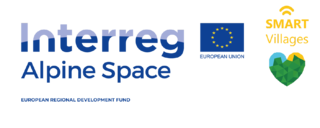demo text
World Café
Smart mobility, Smart governance, Smart economy, Smart environment, Smart living, Smart people
A World Café is a participatory method for facilitating collaborative dialogue and sharing of knowledge and ideas, to create a living network of conversation and action. In this method, a café ambience is created, in which participants discuss a question or issue in small groups around the tables.
In the Café event the participants explore an issue by discussing and drawing in small groups or ‘tables’ for multiple consecutive sessions of 20-30 minutes. Participants change tables after each session in order to ‘cross-fertilise’ their discussions with the ideas generated at other tables. One table host remains and summarises the previous conversation to the new table guests. Thus the proceeding discussions are fertilised with the ideas generated in former conversations, with other participants. The move-along system ensures multiple themes are handled, making it easier to collect data on the various aspects of the phenomenon.
At the end of the process, the main ideas are summarised in a plenary session and follow-up possibilities are discussed. The event is concluded with a plenary, where the key ideas and conclusions are established. The World Café is a great way to engage people in conversation and to deepen relationships and mutual ownership of outcomes.
Before meeting
This methodology requires a lot of preparation time, both in the preparation of the contents and in the practical and organizational elements (distribution of groups, drafting of questions etc.).
- To start off, decide on the purpose and focus of the World Café conversation. Think about what you're going to ask. Experienced Café hosts recommend to pose open-ended questions (the kind that do not have ‘yes’ or ‘no’ answers).
- In order to offer the various points of view to the different tables, multiple moderators are required (one for each table). The job of the moderators is to see that the guidelines for dialogue and engagement are put into action. They can make the difference between an interesting conversation and breakthrough thinking.
Decide who should be invited to the gathering.
- To organise a World Café workshop you will need an inviting place - the event should take place at a relaxed environment, not in an office or official facilities. To encourage the creative thinking of participants, you can provide round tables covered in writable tablecloth with lots of paper, cards and coloured pens. It also helps to have a side table for refreshments and snacks, if appropriate. There should be 3-6 chairs at each table.
Meeting execution
When hosting a workshop, the purpose of the gathering should be explained. Ask participants to gather around the tables. Pose the questions or themes for rounds of conversation and make sure that the question is visible to everyone.Explain how the logistics of the Café will work, including the role of the moderators. Every table should have a moderator who will lead the conversation and write down all ideas. The members of each table explore the questions or issues at hand together. Moderators should ask the participants to share their individual perspectives and listen for what is emerging ‘in the middle of the table’.Encourage participants to use the markers and paper on the table to create a ‘shared visual space’ by noting key ideas and drawing the emerging ideas. The time participants spend at one table is usually set to 20-30 minutes. After 20-30 minutes the groups should change tables. Make sure that the members of each table go to different tables during each time. This cross-pollination of ideas often produces surprising results that could not have happened otherwise. Moderator stay at the same table each time. They welcome the next group and briefly fill the participant in on what happened in the previous round, using the flipchart tablecloths as a visual reminder of the previous conversation. They encourage guests to build on that with new ideas and also with links and connections coming from their previous table conversations – listening carefully and building on each other’s contributions.The last phase of the Café involves making the work done visible to everyone. To do so, hold a conversation between the individual tables and the whole group. Ask the table groups to spend a few minutes considering what occurrences were most meaningful to them. Point out most important and new learnings, ideas.
After meeting
Use/ implement the results of the discussion in future planning or realisation of the activities.
 Village, Town, Municipality
Village, Town, Municipality
 One-time event, 45 minutes to 3 hours
One-time event, 45 minutes to 3 hours
 1 moderator for each table and 10 - 20 participants (3 - 6 people for each table)
1 moderator for each table and 10 - 20 participants (3 - 6 people for each table)
 Moderator skills required, moderator knowledge required.
Moderator skills required, moderator knowledge required.
 Sector: Universal method
Sector: Universal method
